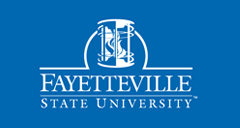Abstract
Abstract
This single case study examined the perceptions of William L. “Bill” Phillis, the Executive Director of the Ohio Coalition for Equity and Adequacy of School Funding, concerning an unconstitutional funding model, subsequent sociopolitical barriers, and their impact on students and school districts from underprivileged socioeconomic background within the context of the DeRolph v. State of Ohio legal battle. This research adds to the extant literature on the educational implications of the property tax and foundation model of school funding. As well, we discuss William’s insights regarding the politics, nature, and development of the current state of public school financing in Ohio. There were four emergent themes: sociopolitical sentiment and rhetoric, the plight of poorer districts, seeing a shared vision, and constitutional language and responsibility. Key findings from the study provide awareness to foster civic responsibility to effect change for inequitable and inadequate funding formulae, to encourage politicians to abandon political agendas over constitutional will, and for educators and students alike to continually advocate for a reformed system of school funding. These findings are especially relevant among under-resourced districts such as those in Appalachian Ohio.
Key words: advocacy, educational leadership, equity, foundation model, school funding, single-case study
Recommended Citation
Fewell, Connor J.; Hess, Michael E.; and Lowery, Charles L.
(2019)
"Twenty Years in the Trenches: A Fight for Equitable and Adequate School Funding in Ohio,"
Journal of Research Initiatives: Vol. 4:
Iss.
2, Article 7.
Available at:
https://digitalcommons.uncfsu.edu/jri/vol4/iss2/7
Included in
Educational Leadership Commons, Educational Sociology Commons, Education Policy Commons, Inequality and Stratification Commons, Politics and Social Change Commons, Quantitative, Qualitative, Comparative, and Historical Methodologies Commons, Social and Philosophical Foundations of Education Commons
